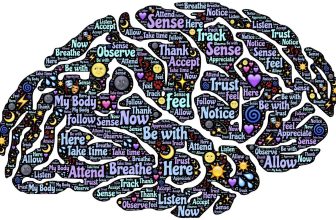The Importance of Sleep Optimization: Enhancing Health, Productivity, and Well-being
Introduction:
Sleep optimization plays a vital role in maintaining an individual’s physical, mental, and emotional well-being. The quality and quantity of sleep directly impact an individual’s overall health, cognitive functions, productivity, and emotional stability. Unfortunately, in today’s fast-paced world, sleep is often neglected or compromised, leading to a wide range of adverse effects on individuals and society as a whole. This article aims to explore the significance of sleep optimization and provide evidence-based strategies to enhance sleep quality and ensure a restful and rejuvenating experience.
Sleep and its Phases:
Sleep is a complex phenomenon with distinct stages and functions. There are two major types of sleep: rapid eye movement (REM) sleep and non-rapid eye movement (NREM) sleep. NREM sleep consists of three stages: N1, N2, and N3, with each stage serving different functions such as memory consolidation, bodily repair, and hormonal regulation. REM sleep, also referred to as dream sleep, plays a crucial role in processing emotions, storing memories, and cognitive restoration.
The Impact of Sleep Deprivation:
Sleep deprivation or poor sleep quality can have detrimental effects on various aspects of an individual’s life. Physically, it weakens the immune system, leads to weight gain, increases the risk of chronic conditions like heart disease and diabetes, and reduces overall life expectancy. Mentally, it impairs cognitive functions, such as attention, memory, problem-solving, creativity, and decision-making abilities. Emotionally, it contributes to mood swings, irritability, anxiety, and depression. Furthermore, sleep deprivation is linked to reduced work productivity, accidents, and even fatalities.
Strategies for Sleep Optimization:
1. Establish a Consistent Sleep Schedule: Maintaining a regular sleep-wake cycle helps synchronize the body’s internal clock, also known as the circadian rhythm. Setting a consistent bedtime and waking time trains the body to follow a predictable sleep routine, promoting better quality sleep.
2. Create a Restful Sleep Environment: Ensure that the bedroom promotes relaxation and promotes sleep. Keep the room dark, quiet, and at a comfortable temperature. Invest in a good mattress, pillows, and bedding to support proper alignment and body comfort. Limit electronic devices before bedtime and consider using blackout curtains, earplugs, or a white noise machine to block out disturbances.
3. Practice Relaxation Techniques: Engaging in relaxation techniques, such as deep breathing exercises, meditation, or engaging in a bedtime routine, signals the body to prepare for sleep. Activities like reading a book, taking a warm bath, or listening to soothing music can help create a calm and peaceful mindset conducive to quality sleep.
4. Prioritize Regular Exercise: Regular physical activity during the day can improve sleep quality and duration. However, it is essential to time exercise sessions smartly, preferably completing them a few hours before bedtime. Vigorous exercise close to bedtime may lead to increased alertness, making it difficult to fall asleep.
5. Monitor and Control Stimulants: Stimulants like caffeine, nicotine, and alcohol can disrupt sleep patterns. It is advisable to limit caffeine consumption, especially in the afternoon and evening, as the effects can last for hours. Similarly, nicotine should be avoided altogether, considering its stimulating effects. Alcohol, although it may initially induce drowsiness, negatively impacts the quality and depth of sleep, leading to frequent awakenings throughout the night.
6. Optimize Sleep Environment and Routine: Pay attention to lighting, temperature, and noise levels. Soft lighting, cooler room temperatures, and minimizing external noise can significantly impact sleep quality. Additionally, establishing a relaxing bedtime routine signals the body and mind that it is time to unwind and prepare for sleep.
7. Manage Stress and Anxiety: Stress and anxiety can interfere with falling asleep and maintaining a restful sleep throughout the night. Employ stress-management techniques, such as practicing mindfulness, journaling, and seeking support when needed to ensure a calmer state of mind for a restful sleep.
Conclusion:
Sleep optimization is crucial for individuals to maintain overall health, well-being, and productivity. Neglecting the significance of quality sleep can lead to detrimental effects on physical, mental, and emotional health. By implementing strategies such as establishing a consistent sleep schedule, creating a restful sleep environment, practicing relaxation techniques, prioritizing exercise, monitoring stimulant intake, and managing stress, individuals can optimize their sleep patterns and reap the countless benefits of a good night’s sleep. It is high time that we recognize the importance of sleep and prioritize its optimization for a healthier and more fulfilling life.








